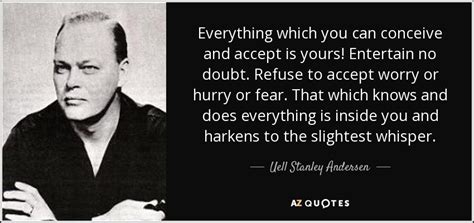A Quote by Carlos Slim
You cannot have people in your organization who are pessimists. They take you to mediocrity.
Quote Topics
Related Quotes
The distance between number one and number two is always a constant. If you want to improve the organization, you have to improve yourself and the organization gets pulled up with you. That is a big lesson. I cannot just expect the organization to improve if I don't improve myself and lift the organization, because that distance is a constant.
I think it's possible for me to approach the whole problem with a broader scope.When you look at something through an, an organizational eye, whether it's a, a religious organization, political organization, or a civic organization, if you look at it only through the eye of that organization, you see what the organization wants you to see. But you lose your ability to be objective.



































